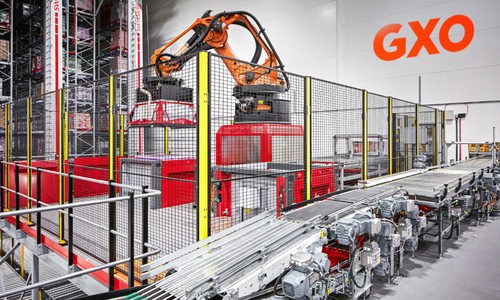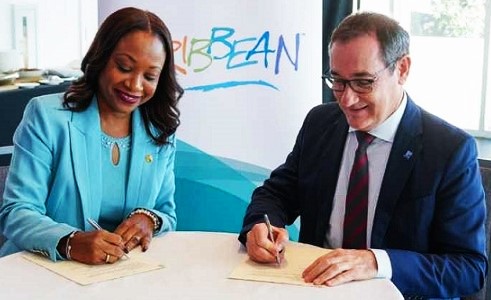GXO Logistics, Inc. the world’s largest pure-play contract logistics provider, will hold a ribbon-cutting ceremony to celebrate the expansion of its partnership with innovative furniture designer and manufacturer Floyd that began in 2019. The new warehouse space, situated in a GXO Direct facility, a shared space solution in Horn Lake, Mississippi, is 120,000 square feet and will be used for picking and packing large furniture items as well as supporting kitting and returns management.
“We’ve enjoyed a great partnership with Floyd for the past several years and we’re excited to see our logistics operations expand into this new space,” said Billy Peterson, Division President, GXO Direct. “GXO Direct is an agile, cost-effective solution for responding to the challenges of managing growth, seasonality and changes in buyer behavior. With this larger space, we’ll be able to expand our scope of services, providing even better support and an unrivalled consumer experience. We’re looking forward to continuing to help Floyd efficiently grow its business.”
Floyd uses GXO Direct to achieve highly efficient picking and packing, gain real-time visibility into its inventory levels and to put its inventory within one- or two-day ground delivery of approximately 99% of the U.S. population, reducing time-in-transit as well as damage rates and losses.
Kyle Hoff, CEO and Co-Founder, Floyd, said, “As our business continues to grow, GXO has provided a cost-effective warehousing solution with immediate service benefits and rapid scalability, if and when we need additional resources. This new space will help us continue to improve the overall experience for our end-consumers throughout North America.”
GXO Direct helps companies grow strategically, providing warehousing space when and where they need it along with access to GXO’s industry-leading technology and expertise. This helps reduce fixed costs and can eliminate the need to invest in a dedicated warehouse. In addition, GXO Direct can reduce transit costs, shorten transit times and lower CO2 emissions by reducing shipping miles and the need for carbon-intensive air transportation.











